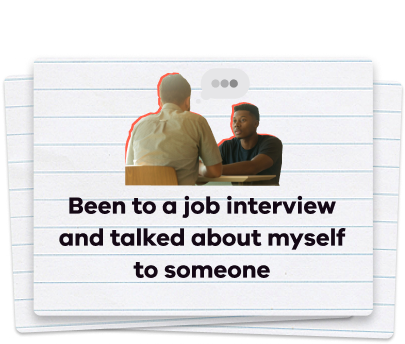Job interviews usually follow a pattern or happen in similar stages.
This doesn’t mean every job interview is the same. When you’ve been to a few, though, you’ll see that what happens in a job interview is often fairly predictable.
Knowing what to expect at a job interview can help you can be better prepared. Here is an overview of some things to expect at a job interview.
1. Meeting the interviewer
You’ve done your preparation. You’re showered and dressed in your job interview clothes.
You’ve arrived on time. You might have been greeted by a receptionist or someone else who asked you to wait for your interview.
You may be met by the interviewer and taken to the interview room. You may be taken to the interview room by someone else.
Sometimes there might be more than one interviewer. This is called an interview panel.
Meeting the interviewer (or interviewers) is the moment the interview starts.
The interviewer will ask you to take a seat, and will usually offer you a glass of water. You should take the water, even if you don’t feel like it. If your voice gets croaky during the interview you can take a sip to clear your throat.
2. Making polite conversation with the interviewer
The interviewer will usually start by making some polite conversation. This is a good chance to get warmed up for the interview.
The interviewer might ask:
- ‘Did you have any trouble finding us?’
- ‘How about that weather?’
Try to answer confidently. Ask some questions of your own to keep the conversation flowing. You might ask:
- ‘This is an amazing building. How long have you been in this location?’
- ‘Do you have far to commute to get to work?’
Polite conversation can let the interviewer know you’re relaxed and confident. It shows you can relate to anyone, even in a stressful or formal situation like a job interview.
3. The main part of the interview
The main part of the interview usually progresses in a number of stages.
Introduction to the organisation and the job
Before they start asking you questions, the interviewer will usually tell you about the organisation and the job.
You should pay careful attention to what the interviewer says. You can take notes if it helps. Try to remember at least one thing you can ask a question about later on.
Icebreaker questions
The first couple of questions will usually be simple ones to help you get comfortable. Examples of these questions include:
- ‘Tell me about yourself.’
- ‘Why did you apply for this job?’
Behavioural and skills-related questions
The core of the interview will usually be questions about how you behave in certain situations. The interviewers want to know you’ve got the right skills and experience to do the job.
Needs-based interview questions
Needs-based questions are about the things you need or expect from the job. Examples of these questions include:
- ‘When can you start and what’s your availability?’
- ‘What are your expectations for pay?’
4. Your chance to ask questions
Once the interviewers have finished asking questions, they’ll usually give you a chance to ask your own questions.
It's good to have at least one question ready to ask. This could be something you've prepared based on your research before the interview. It could also be something from the interviewer’s introduction that you want to know more about.
For example, you could ask:
- ‘What do you see as the main challenge for this job?’
- ‘Do you offer opportunities for training?’
5. The end of the interview
At the end of the interview you should thank the interviewer for the opportunity to be interviewed.
You could also ask them about the rest of the application process, and how long it will be before they let you know if you’ve got the job.
You might be relieved the interview is over, but it’s best not to relax too much. Keep your behaviour formal and professional until you’ve left the building.
For some advice about what to do and what to expect after you've been interviewed, visit what happens after a job interview?
Also get some more advice about preparing for a job interview.

